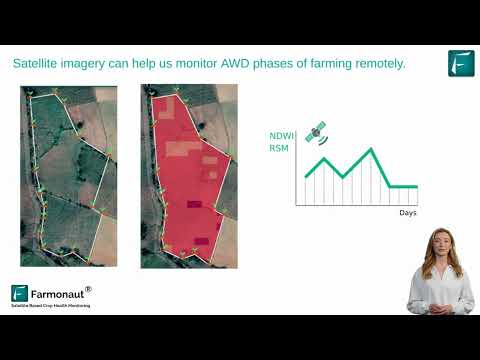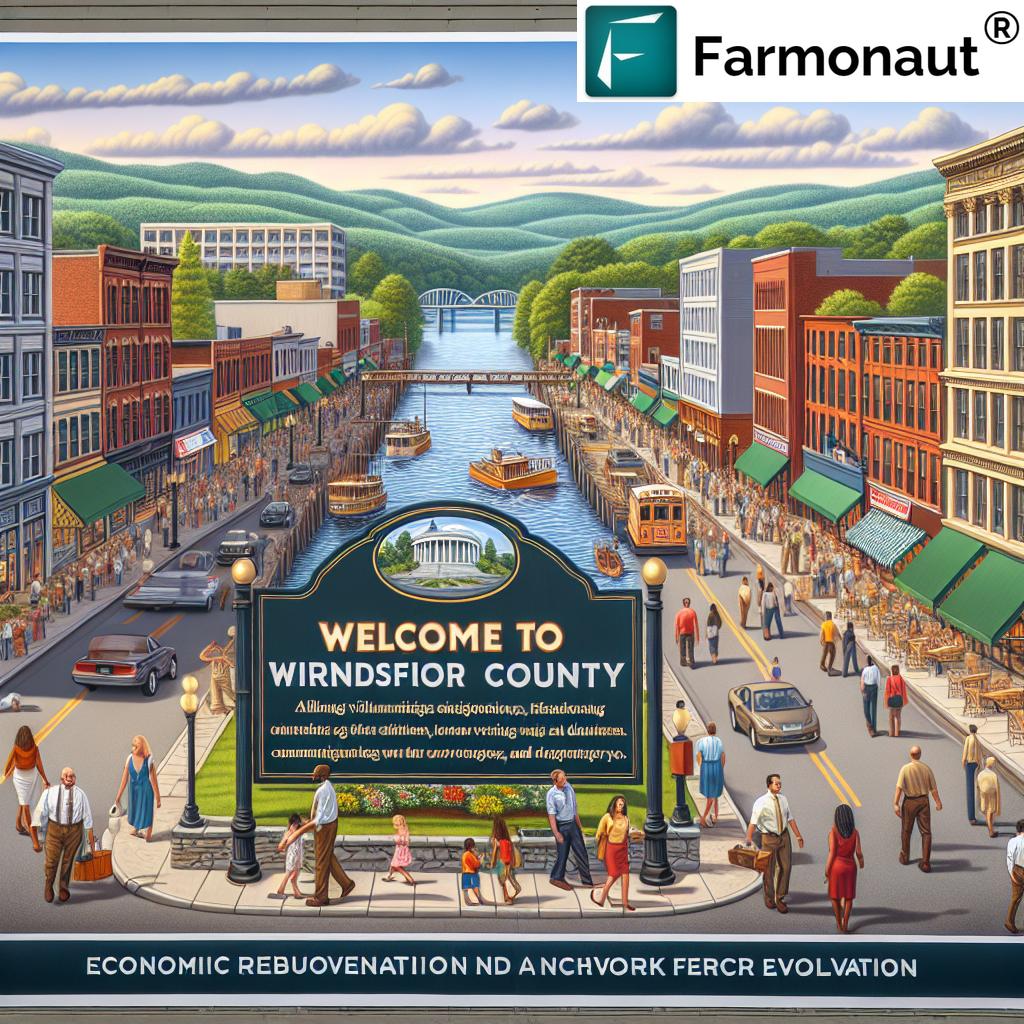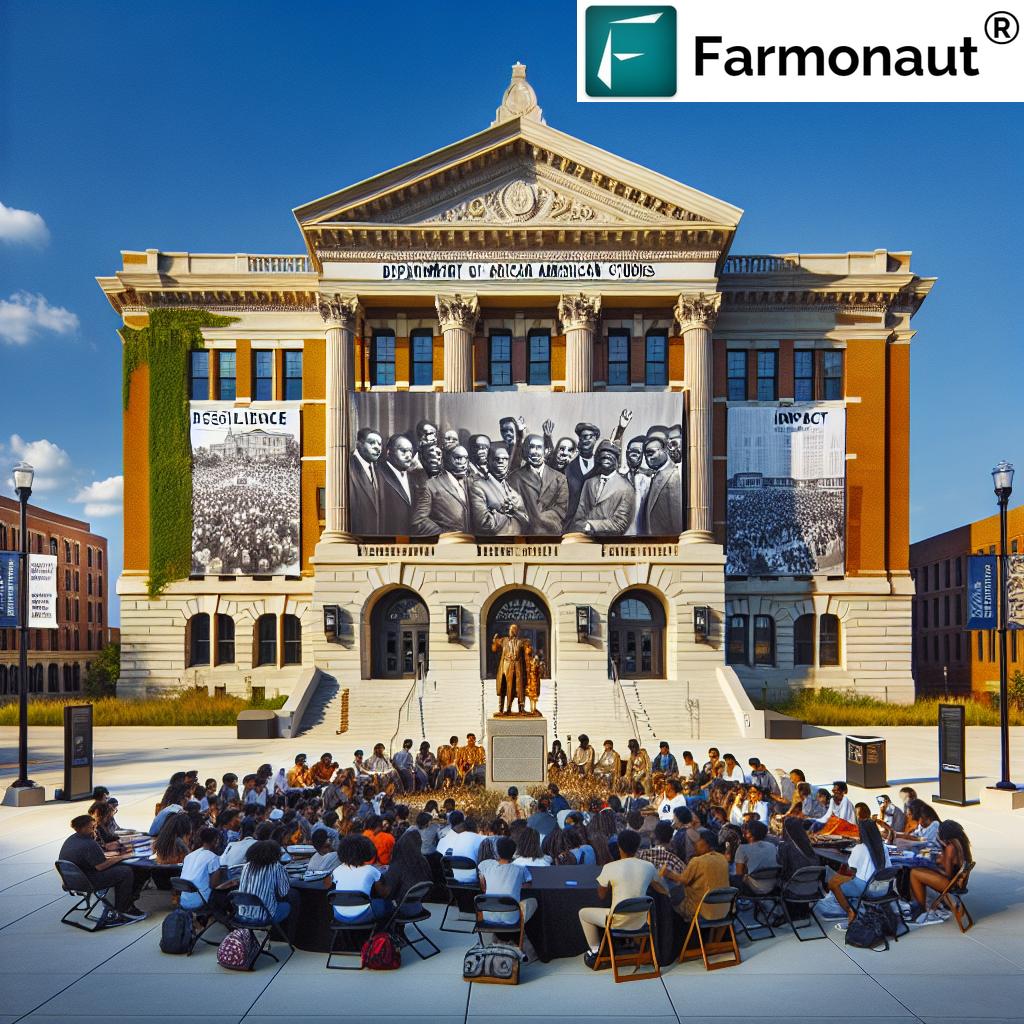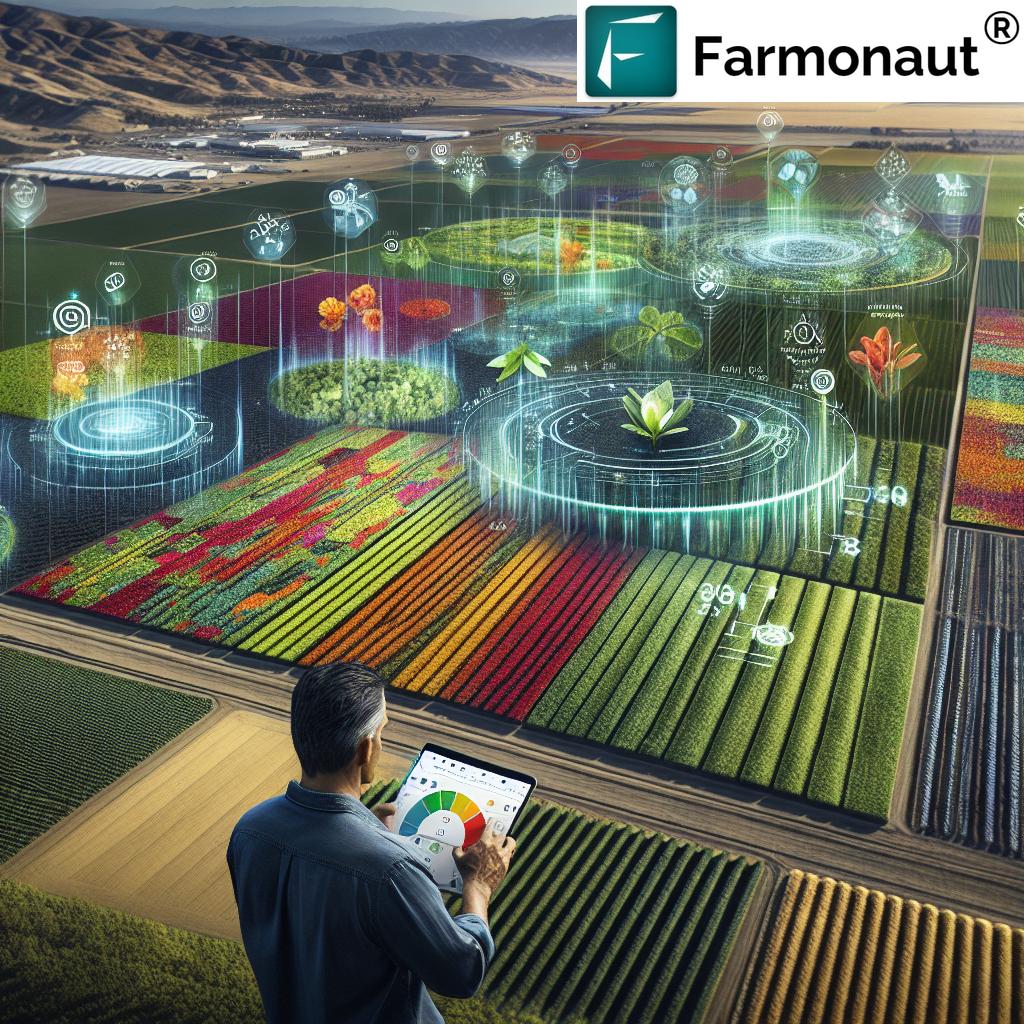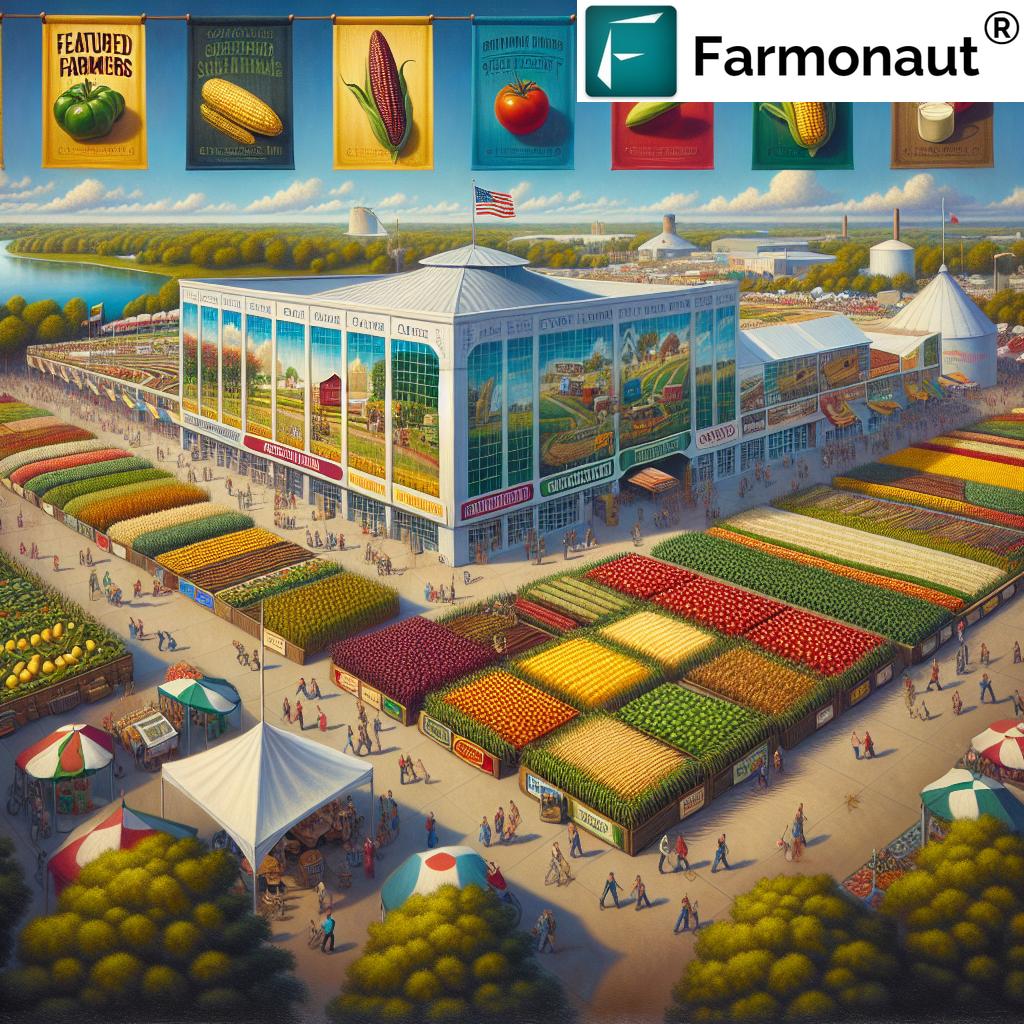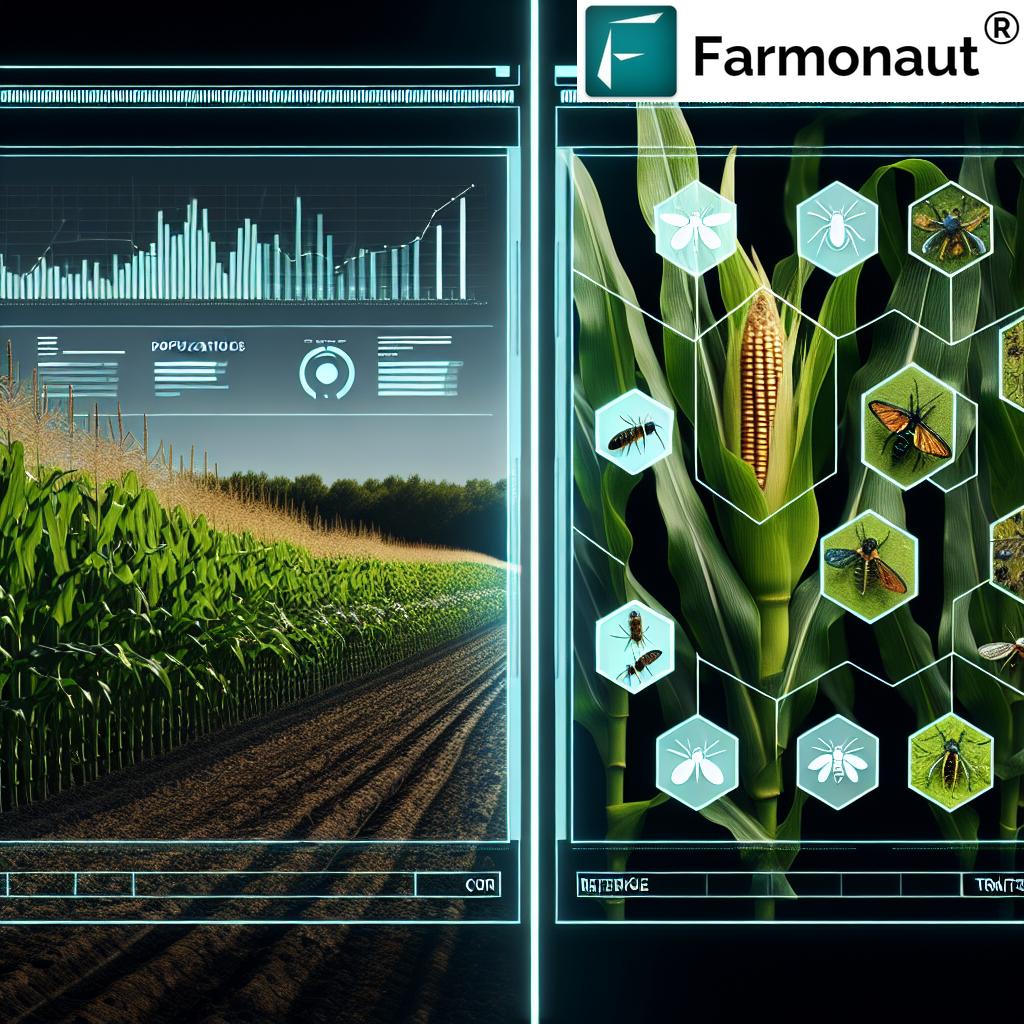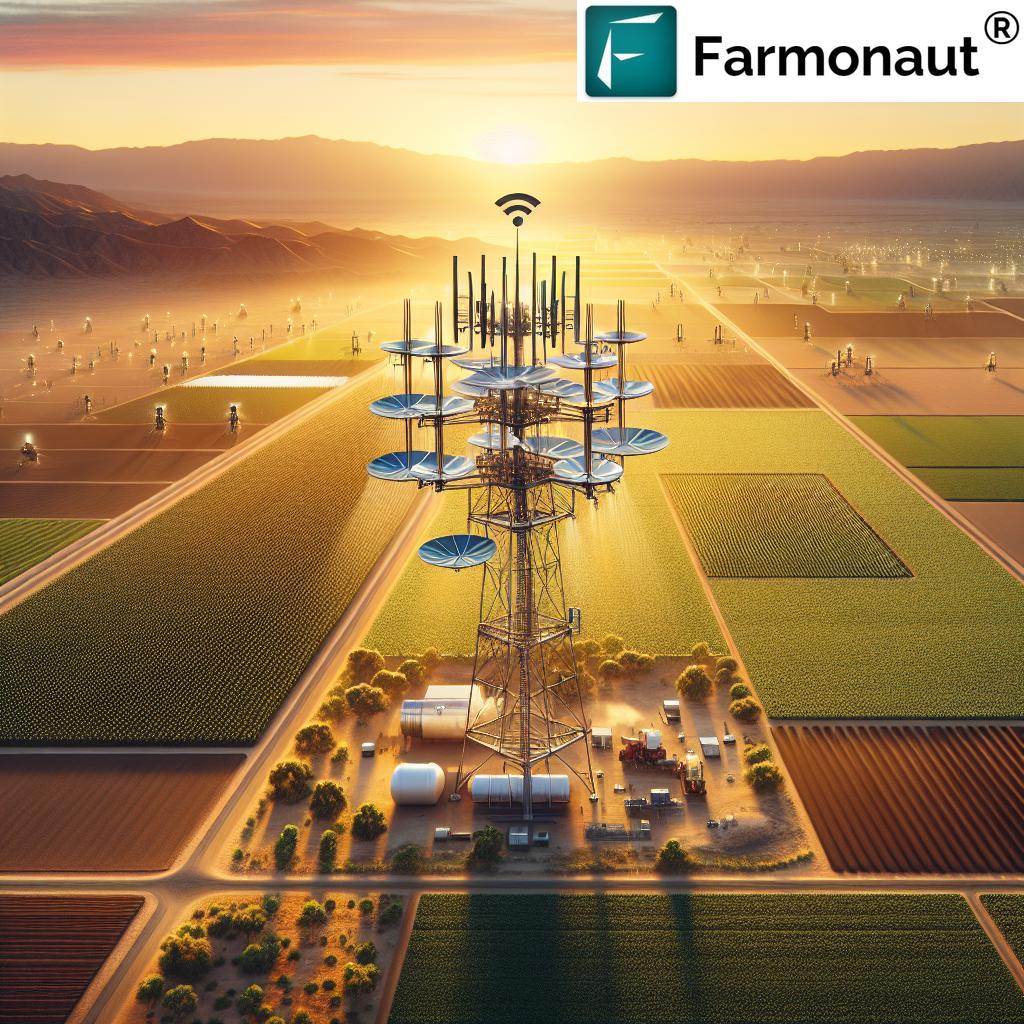Unlock Detroit’s Urban Farming Revolution: From Fusion Egg Rolls to Community Gardens
Welcome to our Thanksgiving special, where we’re diving deep into the heart of Detroit’s culinary renaissance and urban farming revolution! As we gather around our tables this holiday season, let’s take a moment to appreciate the incredible transformation happening in the Motor City. From innovative fusion cuisine to thriving community gardens, Detroit is redefining what it means to be a food-forward city in the Midwest.
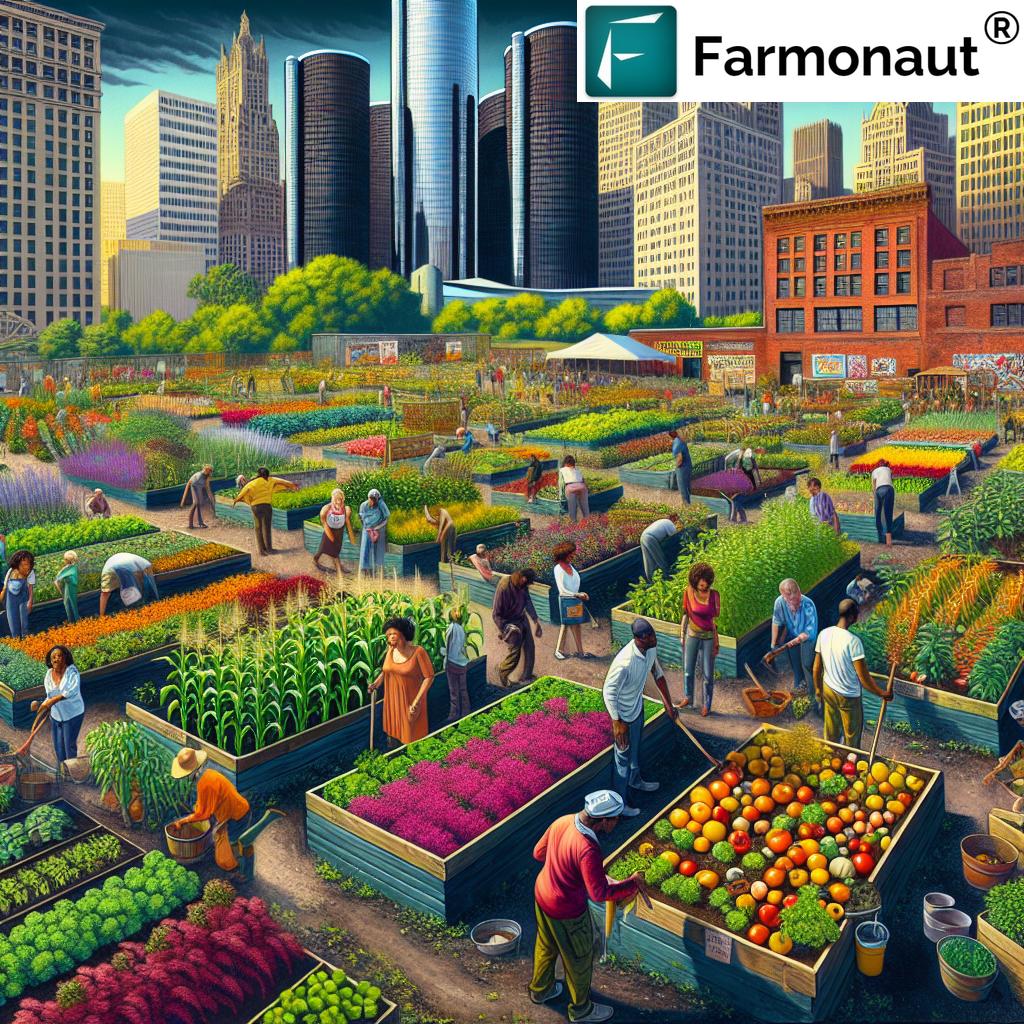
“Detroit boasts over 2,200 urban gardens and farms, transforming the city’s landscape and food culture.”
In this blog post, we’ll explore how Detroit is embracing its culinary heritage while pushing boundaries with innovative dishes. We’ll also delve into the city’s burgeoning urban agriculture scene, which is not only providing fresh produce but also fostering community connections and cultural pride. So, grab a seat at our virtual table as we serve up a feast of information about Detroit’s food revolution!
Detroit-Style Egg Rolls: A Fusion Sensation
Let’s kick things off with a dish that’s taken social media by storm: Detroit-style egg rolls. These aren’t your average appetizers, folks. We’re talking about oversized, multicultural flavor bombs that are redefining fusion cuisine.
“Oversized Detroit-style egg rolls with multicultural fillings have become a viral sensation on social media platforms.”
At the heart of this culinary innovation is Sista Roles Street Eats in Allen Park, where entrepreneurs Porsche and Courvoisier Jackson have created a local favorite that’s capturing hearts and taste buds alike. These egg rolls are a perfect example of how Detroit’s diverse communities are coming together to create something truly unique.
The Evolution of a Classic
The story of Detroit’s egg rolls is a testament to the city’s melting pot of cultures. Originally derived from Chinese American spring rolls, these crispy delights have undergone a transformation that reflects the city’s rich history. Jewish and African American communities have played a significant role in shaping this new culinary icon, infusing it with flavors that speak to Detroit’s soul.
- Corned beef and cheese fillings (a nod to Detroit’s Jewish delis)
- Soul food-inspired ingredients
- Locally sourced produce and meats
This fusion approach isn’t just about creating Instagram-worthy food; it’s a celebration of Detroit’s cultural tapestry. Each bite tells a story of immigration, adaptation, and culinary creativity.
Urban Farming: Detroit’s Green Revolution
Now, let’s shift gears and talk about where many of these incredible ingredients come from. Detroit’s urban farming scene is nothing short of revolutionary. With over 2,200 gardens and farms spread across the city, urban agriculture has become a cornerstone of Detroit’s revitalization efforts.
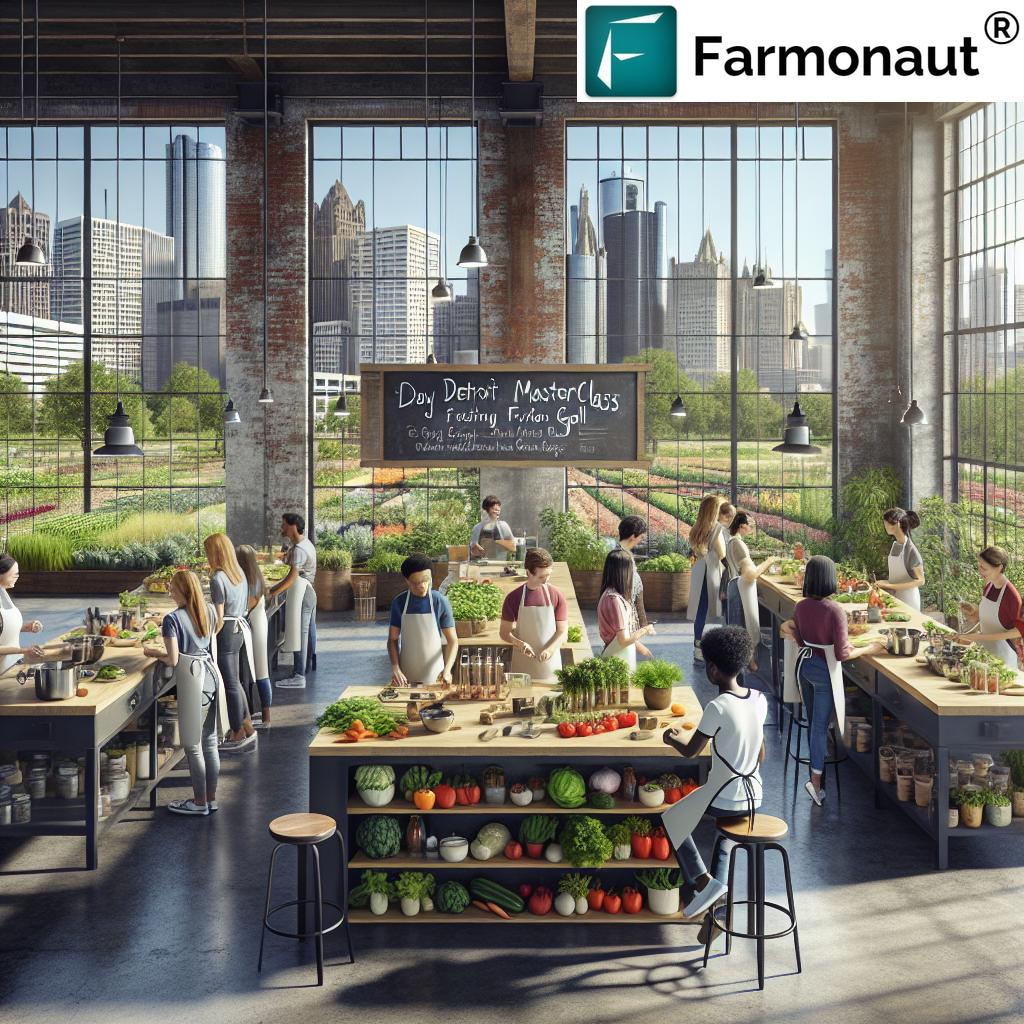
Organizations like Keep Growing Detroit are at the forefront of this movement, empowering residents to grow their own food and fostering a sense of food sovereignty within the community. But what exactly is food sovereignty, and why is it so important for Detroit?
Food Sovereignty: Taking Control of the Plate
Food sovereignty is all about communities having control over their food systems. In Detroit, this means:
- Access to fresh, culturally significant foods
- Reduced reliance on industrial food systems
- Community self-sufficiency and empowerment
- Preservation of cultural food traditions
Through programs like the Garden Resource Program, Keep Growing Detroit provides seeds, resources, and education to help residents start and maintain their own gardens. This initiative isn’t just about growing vegetables; it’s about growing communities.
As we think about the future of urban farming, it’s exciting to consider how technology can support these initiatives. For instance, Farmonaut’s satellite-based farm management solutions could potentially help urban farmers optimize their small plots for maximum yield. While primarily designed for larger agricultural operations, the principles of precision farming could be adapted to benefit city gardens as well.
Culinary Education: Nourishing the Next Generation
One of the most inspiring aspects of Detroit’s food revolution is the focus on youth education. The Downtown Boxing Gym is leading the charge, integrating culinary education into its youth development programs. Here’s why this matters:
- Teaching kids to cook healthy meals
- Introducing diverse cuisines and cultures
- Developing life skills and potential career paths
- Promoting better nutrition for academic and physical performance
Associate Director Molly Mitchell has been instrumental in developing a curriculum that goes beyond basic cooking skills. In their new commercial kitchen, children aged 8-18 learn about food safety, nutrition, and the joy of preparing meals from scratch.
This program isn’t just about creating future chefs (although that’s certainly a possibility!). It’s about empowering young people to make informed choices about their diets and to appreciate the cultural significance of food. In a city where access to fresh, healthy food hasn’t always been a given, this education is transformative.
Community Gardens: Growing More Than Just Produce
Detroit’s community gardens are more than just plots of land where vegetables grow. They’re outdoor classrooms, social hubs, and symbols of neighborhood revitalization. Let’s dig into why these spaces are so crucial for the city:
- Providing fresh produce in food deserts
- Creating green spaces in urban environments
- Fostering community connections and pride
- Offering educational opportunities for all ages
These gardens are transforming vacant lots into vibrant community assets. They’re places where neighbors can come together, share knowledge, and literally enjoy the fruits of their labor. For many Detroiters, these gardens represent hope and the power of grassroots action.
As these community gardens grow, so does the need for efficient management and monitoring. This is where technology like Farmonaut’s API could potentially play a role, offering insights into soil health and crop growth even on a small scale. While primarily designed for larger agricultural operations, the principles of precision farming could be adapted to benefit urban gardens as well.
The Ripple Effect: How Food Initiatives Are Changing Detroit
The impact of these food-centric initiatives extends far beyond the dinner table. They’re reshaping Detroit’s economy, culture, and sense of community. Here’s how:
- Job creation in urban agriculture and food service
- Increased property values near community gardens
- Improved access to healthy food options
- Strengthened community bonds and social cohesion
By investing in food-related programs, Detroit is addressing multiple challenges simultaneously. It’s not just about feeding people; it’s about nourishing a city’s spirit and potential.
Celebrating Detroit’s Culinary Heritage This Thanksgiving
As we approach Thanksgiving, it’s the perfect time to reflect on how food brings us together. In Detroit, this holiday is an opportunity to showcase the city’s unique culinary offerings and the progress of its urban farming initiatives. Here are some ways Detroiters are putting a local spin on their Thanksgiving celebrations:
- Incorporating Detroit-style egg rolls as appetizers
- Using locally grown produce from community gardens in traditional dishes
- Hosting community potlucks that feature diverse cultural dishes
- Volunteering at urban farms to give back to the community
These celebrations are a testament to Detroit’s resilience and creativity. They show how a city can honor its past while embracing innovation and diversity.
Looking to the Future: Sustainable Urban Farming Practices
As Detroit’s urban farming movement continues to grow, there’s an increasing focus on sustainability. Farmers and gardeners are exploring innovative techniques to maximize yields while minimizing environmental impact. Here are some practices gaining traction:
- Vertical gardening to maximize space
- Rainwater harvesting systems
- Composting programs to reduce waste and improve soil health
- Solar-powered irrigation systems
These practices not only make urban farming more efficient but also contribute to Detroit’s overall sustainability goals. As the city looks to the future, integrating technology into urban farming could take these efforts to the next level.
For instance, tools like Farmonaut’s satellite and weather data API could potentially be adapted for urban settings, helping city farmers make data-driven decisions about planting and harvesting. While currently geared towards larger agricultural operations, the principles of precision farming could offer valuable insights for urban growers as well.
The Role of Technology in Urban Agriculture
As we look to the future of urban farming in Detroit, it’s exciting to consider how technology could play a role in enhancing these initiatives. While many of the city’s gardens are small-scale and community-driven, there’s potential for tech solutions to make a big impact.
For example, Farmonaut, a company specializing in satellite-based farm management solutions, offers tools that could potentially be adapted for urban settings. While their primary focus is on larger agricultural operations, the principles of precision farming could offer valuable insights for city growers as well.
- Satellite imagery for monitoring crop health
- AI-driven advisory systems for optimal planting and harvesting times
- Weather forecasting to protect crops from adverse conditions
- Resource management tools to optimize water and nutrient use
Imagine a future where community garden managers could access real-time data about their plots through a simple smartphone app. This kind of technology could help urban farmers make the most of limited space and resources, potentially increasing yields and sustainability.
For those interested in exploring how technology can support urban farming, Farmonaut offers several ways to engage with their platform:
- Web App for comprehensive farm management
- Android App for on-the-go monitoring
- iOS App for iPhone users
While these tools are currently designed for larger-scale farming, they represent the kind of innovative thinking that could revolutionize urban agriculture in the future.
Detroit’s Urban Farming Revolution: A Culinary and Community Snapshot
| Initiative Type | Example | Community Impact |
|---|---|---|
| Fusion Cuisine | Sista Roles Street Eats’ oversized egg rolls | Celebrates cultural diversity, boosts local economy |
| Community Gardens | Keep Growing Detroit’s Garden Resource Program | Increased access to fresh produce, community building |
| Youth Culinary Education | Downtown Boxing Gym’s cooking classes | Improved nutrition knowledge, life skills development |
| Food Sovereignty Programs | Urban agriculture initiatives across 2,200+ sites | Enhanced food security, cultural preservation |
| Sustainable Farming Practices | Vertical gardening, rainwater harvesting | Environmental conservation, resource efficiency |
Conclusion: Detroit’s Recipe for Success
As we wrap up our culinary journey through Detroit, it’s clear that the city’s food scene is about so much more than just delicious meals. It’s a story of resilience, creativity, and community spirit. From the fusion egg rolls that have taken social media by storm to the community gardens transforming neighborhoods, Detroit is cooking up a recipe for urban renewal that other cities would do well to study.
This Thanksgiving, as we gather around our tables, let’s take a moment to appreciate the hard work and innovation happening in kitchens and gardens across Detroit. The city’s food revolution is a testament to what can be achieved when communities come together, embrace their cultural heritage, and aren’t afraid to try new things.
Whether you’re a foodie looking for your next culinary adventure, an urban farming enthusiast, or simply someone who believes in the power of community, Detroit’s story is one that’s sure to inspire. So here’s to Detroit – may its gardens continue to grow, its kitchens continue to innovate, and its communities continue to thrive.
FAQ Section
Q: What are Detroit-style egg rolls?
A: Detroit-style egg rolls are oversized, fusion-inspired versions of traditional egg rolls. They often feature unique fillings that reflect Detroit’s diverse culinary heritage, such as corned beef and cheese.
Q: How many urban gardens and farms are there in Detroit?
A: Detroit boasts over 2,200 urban gardens and farms, showcasing the city’s commitment to urban agriculture and community-driven food production.
Q: What is food sovereignty, and why is it important for Detroit?
A: Food sovereignty refers to communities having control over their food systems. It’s important for Detroit because it promotes access to fresh, culturally significant foods, reduces reliance on industrial food systems, and fosters community self-sufficiency.
Q: How is culinary education being integrated into youth programs in Detroit?
A: Organizations like the Downtown Boxing Gym are incorporating culinary education into their youth development programs. These initiatives teach kids how to cook healthy meals, introduce them to diverse cuisines, and develop important life skills.
Q: What role do community gardens play in Detroit’s urban farming revolution?
A: Community gardens in Detroit serve multiple purposes. They provide fresh produce in food deserts, create green spaces in urban environments, foster community connections, and offer educational opportunities for residents of all ages.
Earn With Farmonaut: Affiliate Program
Earn 20% recurring commission with Farmonaut’s affiliate program by sharing your promo code and helping farmers save 10%. Onboard 10 Elite farmers monthly to earn a minimum of $148,000 annually—start now and grow your income!
As we’ve seen, Detroit’s urban farming revolution is transforming the city’s landscape and food culture. From innovative fusion cuisine to thriving community gardens, the Motor City is leading the way in sustainable urban agriculture and culinary creativity. This Thanksgiving, let’s celebrate the spirit of community and innovation that’s making Detroit a model for cities around the world.




